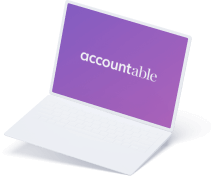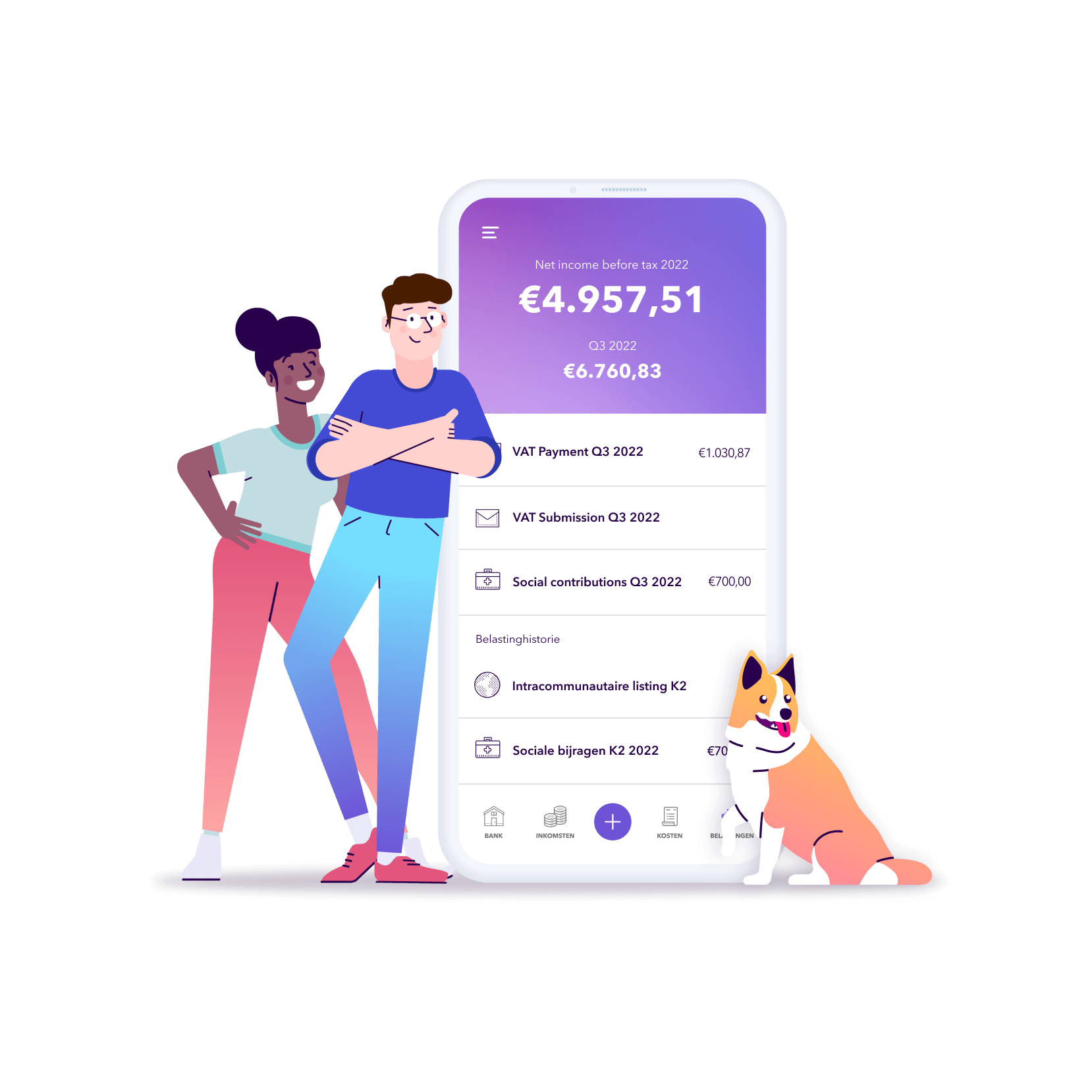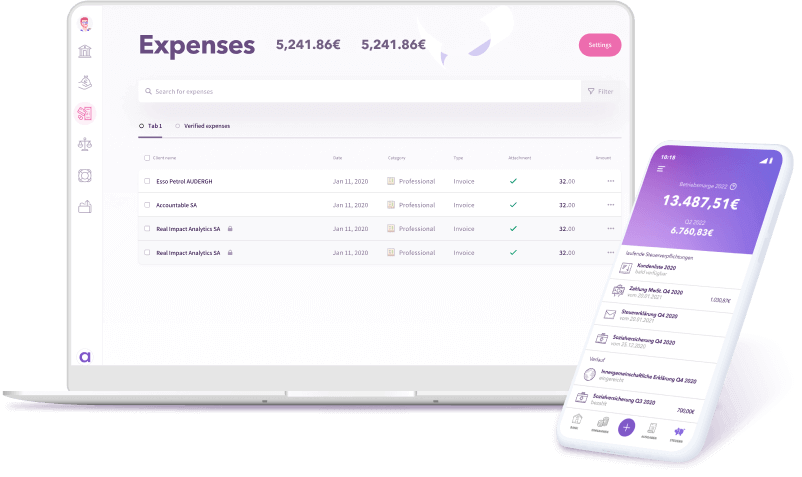
I’m a foreigner living in Germany, how can I become a freelancer?
Read in 5 minutes
Freelance work is more popular than ever, and with the great amount of flexibility that comes with being your own boss, it’s no surprise why. If you’re longing to be in control of your workload and schedule, self-employment might indeed be right for you.
But as a foreigner living in Germany, or looking to make a move to Germany, are you actually allowed to work as a freelancer? Whether you’re planning to dip your toe in with a few extra hours a week, or you’re ready to ditch your full-time job and go all in, you need to make sure you’re permitted to work as a freelancer in Germany.
Don’t worry, we’ve got you. This article breaks it down and answers all your questions about the visa and permit side of becoming a freelancer in Germany.
Can I legally freelance in Germany if I’m not a German citizen?
Yes, foreign citizens can be permitted to work on a freelance basis in Germany.
Despite its reputation for endless bureaucracy, Germany is pretty cool when it comes to allowing foreign workers to come and set up shop. While most countries require foreigners to have full-time employment with a local business in order to obtain a visa to live and work there, Germany encourages foreigners to work in Germany in more flexible ways, such as freelancing.
As you’ll see below, you may still have to wade through a thick pond of paperwork and bureaucracy to obtain the right permit and get the OK, depending on what country you’re from. But the process is manageable and very affordable.
Do I need a visa to freelance in Germany?
Short answer: It depends where you’re from.
EU citizens or permanent residents, and people from Iceland, Liechtenstein, Norway, and Switzerland, are all allowed to live and work – and freelance – in Germany without needing to obtain any visa or residence permit. You’ll still need to register as a freelancer with your local tax office though, which is a different process altogether and shouldn’t be mistaken for applying for a visa.
Non-EU citizens without permanent residency in Germany must obtain a residence permit that allows them to undertake freelance work in Germany. This usually means gathering together some specific supporting documents and information and attending an in-person interview, either at your country’s German embassy, or, if you are from Australia, Canada, Japan, New Zealand, South Korea, or The United States of America, you can apply from within Germany at your local foreigner’s office or Ausländerbehörde.
What we English-speakers refer casually to as the “freelance visa”, or even sometimes the “artist visa” is officially called Aufenthaltserlaubnis für selbständige Tätigkeit, and the application requires, among other things, proof that there’s a demand for your services. It’s by no means an easy process and requires some networking, planning, and preparation. It might help to gather advice from other foreign freelancers, but remember that each case is different. If anything in your application is insufficient, the foreigner’s office will let you know, and sometimes give you a bit of extra time to work on your application.
I already have a working permit, does that mean I can freelance in Germany?
Not necessarily!
You can check to see if your current visa or residence permit allows you to work as a freelancer by looking for the line “Selbstständige Tätigkeit gestattet” on the document itself, which is usually in the form of a sticker in your passport. This line can be included on a work visa for full-time employment, and confirms that you’re permitted to work as a freelancer in addition to your full-time job. Keep in mind, however, that the main occupation listed on your visa must remain your primary source of income.
If you obtained a working visa as a software engineer, for example, and you’re employed as such in a full-time role, your freelancing activities cannot overtake your full-time job. If you start to generate more income from your freelance work, you’ll need to apply for a separate freelance visa.
If your current visa does not state explicitly that you can work on a freelance basis – that is, you don’t see the line “Selbstständige Tätigkeit gestattet” anywhere – you cannot freelance in Germany. In order to start freelancing, you’ll need to visit the foreigner’s office and apply either for an amendment to your existing visa to include freelance work, or apply for a freelance visa (Aufenthaltserlaubnis für selbständige Tätigkeit).
Can foreign students do freelance work?
While it is legal to work in Germany with a student visa, it’s somewhat restricted, and excludes freelance work. However, you’re allowed to hold both a student visa and a freelancing visa, so if you’re living and studying in Germany and you want to start freelancing, you may obtain a freelance visa in addition to your student visa by applying for the freelance work permit (Aufenthaltserlaubnis für selbständige Tätigkeit).
What about taxes for freelancers in Germany?
Just like everybody else, freelancers living and working in Germany are obliged to pay taxes and submit annual income tax returns each year. However, there are a few additional obligations and things to consider when managing your taxes as a freelancer in Germany.
Freelance tax number
Your first step is to obtain your freelance tax number. You’ll receive this automatically after you’ve filled out the freelancer registration form and submitted it to your local tax office.
Freelance tax reporting
If you generate less than €22,000 per year from your freelance activities, you can apply to be considered a small business owner, or Kleinunternehmer, which exempts you from charging and paying VAT. Learn more about the small business classification here.
If you don’t fall in the small business owner category though, you are required to submit advance estimates of monthly or quarterly VAT earnings, as well as an annual summary to confirm or reconcile those estimates. Those VAT earnings also need to be paid to the local tax office (after any applicable VAT tax deductions!).
💡Tip from Accountable: If you’re not sure what expenses you can deduct as a freelancer in Germany, try our handy search tool!
Tax payments and prepayments
Save a portion of your income for tax
If it’s your first time freelancing, one of the most important things to know is that you are responsible for ensuring you have enough money to pay your taxes. In most countries, including Germany, employers withhold estimated tax amounts from employee’s salary payments, in order to ensure that they’re able to pay taxes. If this is what you’re used to, it may come as a shock when you receive your first tax bill. Freelancers must estimate their own taxes and keep money aside for it, so that when it comes time to pay tax, the money is there.
Tax prepayments
To avoid having to pay one large tax sum once a year, the German tax authorities will estimate the tax you’ll owe and ask for quarterly prepayments. This estimation will usually only happen after your first year of freelancing, once the tax office has a sense of how much income you’re generating. Make sure you’re aware when these prepayments are due, to avoid any fines!
Tax in your home country
Each country is different when it comes to tax obligations when living overseas. Some countries have tax treaties with Germany, and their citizens only need to pay tax in Germany. However, even if your home country has a tax treaty with Germany, you may still be required to submit a tax return in both countries. It’s best to seek advice from an accountant in your home country to ensure that you remain compliant with your obligations there.
Got all your necessary permits sorted?
Once you’ve got the permission you need to legally start your freelance career in Germany, you can put your energy into doing what you do best! Now, let us do what we do best! Download Accountable now and access handy tools and templates to help you keep on top of invoicing, bookkeeping, and freelance tax reports in Germany.
Did you find what you were looking for?
Happy to hear!
Stay in the know! Leave your email to get notified about updates and our latest tips for freelancers like you.
We’re sorry to hear that.
Can you specify why this article wasn’t helpful for you?
Thank you for your response. 💜
We value your feedback and will use it to optimise our content.










